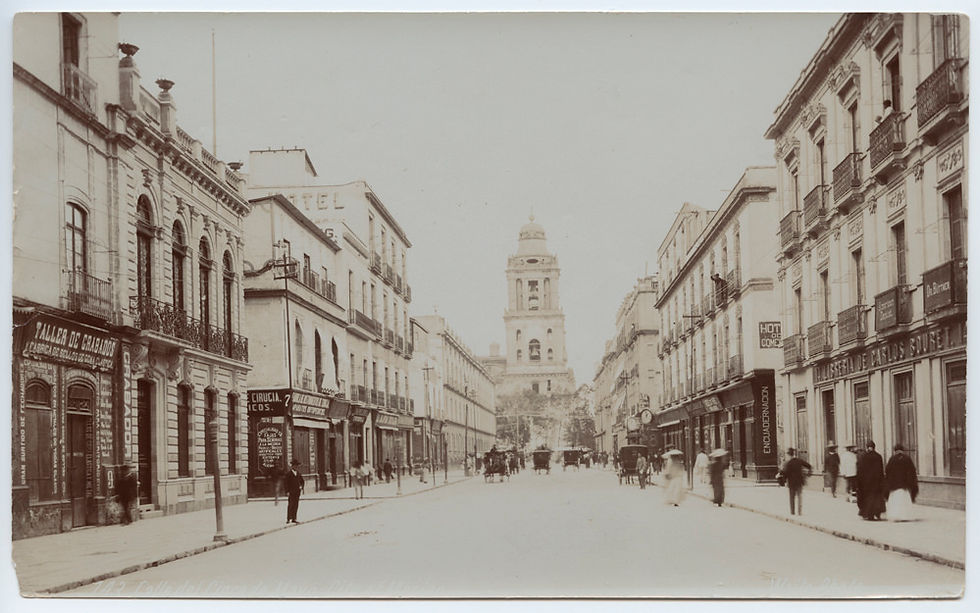Cinco de Mayo – An Important Part of American History
- Carl B. Forkner, Ph.D.
- Mar 15, 2018
- 3 min read
Originally published on May 3, 2017

Cinco de Mayo has become a widespread celebration day throughout much of America. Two challenges come with this day of celebration, though. First, many parts of the country regard it more as “Cinco de Drinko” (yes, local bars and clubs advertise it just that way) than the commemoration of an important event. Second, many Americans have no idea what Cinco de Mayo is actually commemorating. If Americans would have the opportunity to actually learn history in school—much has been marginalized by Common Core and the focus on STEM subject areas—they would understand that this day commemorates an event that helped shape American history…and the country we have today.
No, Cinco de Mayo is not Mexican Independence Day—that is celebrated on September 16th. No, it was not started as a national party day, but has morphed into that in America, much as Memorial Day, the Fourth of July, and Labor Day have become focused more on recreation than on historical and patriotic significance.
Mexican Independence happened in September 1821. The date of September 16th—celebrated as Mexican Independence Day—commemorates the beginning of the Mexican revolution against Spanish rule, led by Father Miguel Hidalgo and Army officer Ignatio Allende, who were put to death after their capture in June and July of 1811, respectively. The Independence Day celebration begins each year on the evening of September 15th with Mexico’s President ringing the same bell rung by Father Hidalgo and reciting the “El Grito de Dolores” as Hidalgo spoke from the pulpit on September 16, 1810, after which a huge army of followers gathered to support the revolutionary cause.

The Battle…
Cinco de Mayo (Spanish for “Fifth of May”) commemorates the Battle of Puebla on May 5, 1862—31 years after Mexico’s War of Independence. In 1861, Mexico declared a temporary moratorium on the repayment of foreign debt, prompting invasion of Mexico by English, Spanish, and French troops. The English and Spanish withdrew in the spring of

1862, but French forces of Napoleon III remained in Mexico. The aim of the French was to establish a monarchy under Maximillian of Austria as a counter balance to American power in North America. On May 5, 1862, Mestizo and Zapotec forces under General Ignacio Zaragoza attacked defeated the French garrison at the Battle of Puebla, which lies southeast of Mexico City. While fighting continued for the next five years until the French were driven out of Mexico, the victory of General Zaragoza’s forces at the Battle of Puebla is commemorated as a symbol of Mexican resistance to foreign imperialism.
Why Americans Should Care…
But how is this relevant to America? One of the underlying threads surrounding the French intentions in Mexico ties directly to the American Civil War. The French, a predominantly agricultural society, supported the Confederacy during the Civil War. The blockading of ports and interception of war supplies heading to the Confederacy were problematic for CSA forces, whose leaders understood that supply chains were critical to their war efforts—most industry was in the north, which allowed better munitions and materials support to the Union Army. France also had “a dog in this fight” because of the robust trade between the South and France, which could be threatened by Union victory.
Had the French prevailed at the Battle of Puebla, establishment of a French colony or monarchy would have provided a new route for French supplies designated for Confederate forces. This new logistics route could have influenced the Civil War such that the tenuous Union victory may not have been able to happen—after all, there were Confederate forces well into the west, including the Arizona and New Mexico Territories, which could have been brought to play a larger role in both the logistics and fighting efforts with a French supply route running through the Southwest. Because of this, Americans should realize the importance of Cinco de Mayo as a historical event that not only solidified Mexico’s freedom from foreign imperialism, but also played an important role in the outcome of the American Civil War.
Did you like this article? A “LIKE” and a “SHARE” would be appreciated greatly!
And have a happy — and SAFE — Cinco de Mayo!






Comments